What's all the hullabaloo over the Nancy Reagan stamp?
The sharpest opinions on the debate from around the web

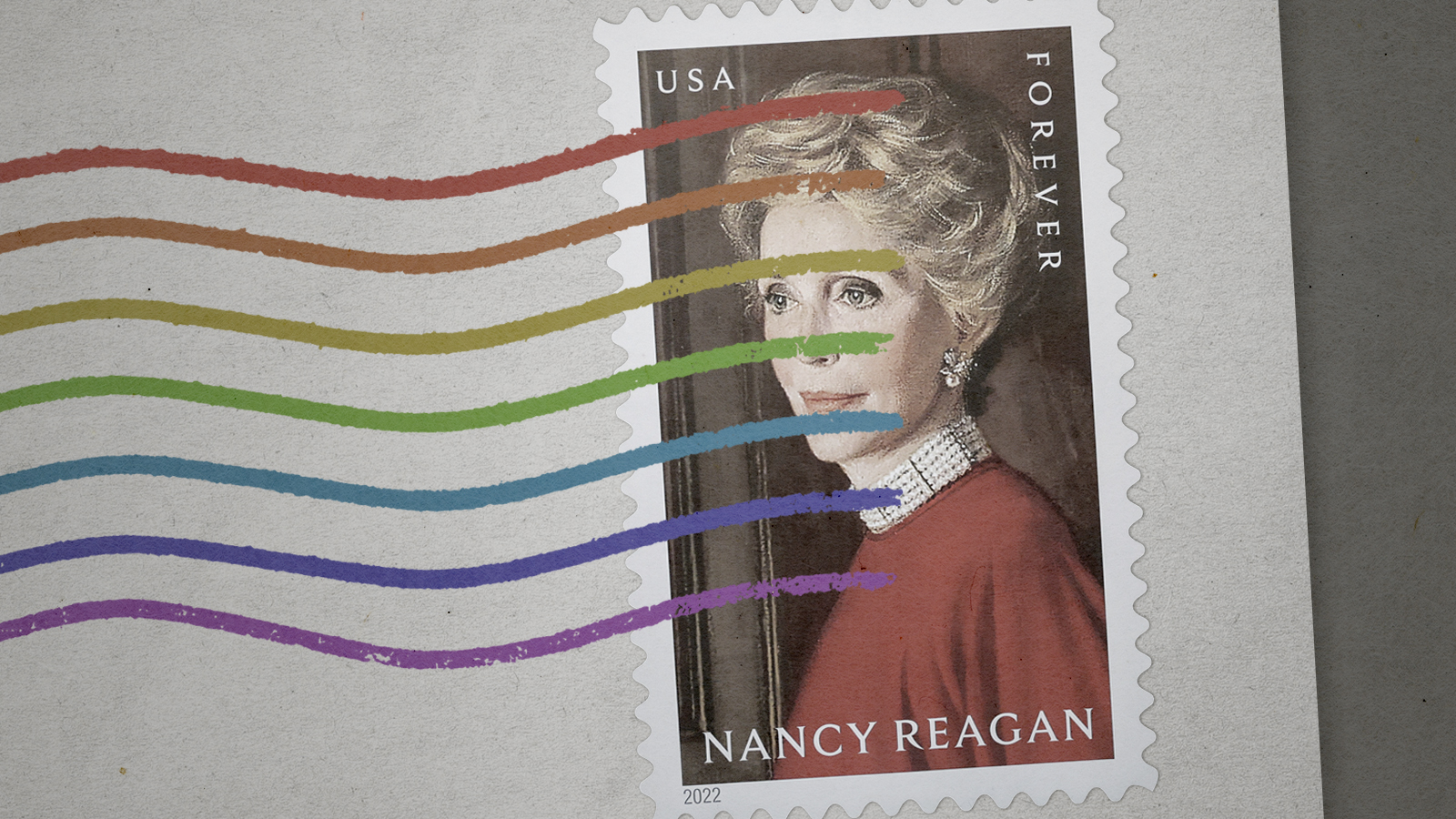
A free daily email with the biggest news stories of the day – and the best features from TheWeek.com
You are now subscribed
Your newsletter sign-up was successful
Last week, the U.S. Postal Service announced a new stamp honoring former first lady Nancy Reagan, the wife of President Ronald Reagan. The stamp was unveiled on what would have been Nancy's 101st birthday. She died in 2016.
One of the speakers at the ceremony was first lady Jill Biden, who said her predecessor "made such a difference" and stands as a reminder that we "can all change the world in big ways and small ones." However, the stamp and Jill Biden's role in unveiling it quickly drew the ire of the LGBT community.
The LGBT backlash
"Nancy Reagan had private friendships with LGBTQ+ people, but she and her husband, President Ronald Reagan, were publicly homophobic, and the Reagan administration was notorious for its inaction as AIDS took the lives of many gay and bisexual men," wrote Trudy Ring of LGBT publication The Advocate. Harvard Law School instructor Alejandra Caraballo also expressed outrage that the stamp was released during Pride Month and claimed that the former first lady had "participated in a genocide."
The Week
Escape your echo chamber. Get the facts behind the news, plus analysis from multiple perspectives.

Sign up for The Week's Free Newsletters
From our morning news briefing to a weekly Good News Newsletter, get the best of The Week delivered directly to your inbox.
From our morning news briefing to a weekly Good News Newsletter, get the best of The Week delivered directly to your inbox.
Also contributing to the backlash was an infamous incident in which Nancy Reagan declined to help a friend, actor Rock Hudson, gain access to AIDS treatment at a French military hospital, though NPR notes that Hudson did ultimately gain admission to the hospital.
The current first lady was also the target of outrage. Some disparaged Jill Biden as emblematic of an insufficiently combative Democratic Party. Others castigated her for appearing alongside Louis DeJoy, the Trump-appointed postmaster general who has been accused of sabotaging the postal service to help Trump win the 2020 election.
Response from the right
Right-leaning commentators and media outlets remained largely silent about Stampgate. One of the few exceptions was Wallace White of the conservative Media Research Center, whose outrage at the people outraged about the Nancy Reagan stamp matched the outrage of the people outraged about the Nancy Reagan stamp. "Pride month is more than just a simple month to celebrate LGBT people … Anything that is seen as an encroachment on pride will be the new target for the woke mob, even a simple honoring of Nancy Reagan with something as banal as a postage stamp," White wrote.
Speaking at the stamp's unveiling, Fred Ryan, who chairs the board of trustees of the Ronald Reagan Presidential Foundation and Institute, took a more subtle approach. In what may have been an attempt to head off criticism related to the AIDS crisis, Ryan claimed that "Nancy Reagan cared deeply about the health and well-being of her fellow Americans," praising her for leading the "Just Say No" campaign against drug abuse. He also cited her public decision to undergo a mastectomy after being diagnosed with breast cancer, writing that the former first lady raised "greater awareness of breast cancer and inspired generations of women in their own battles against the disease."
A free daily email with the biggest news stories of the day – and the best features from TheWeek.com
Nancy's legacy
Nancy Reagan remains a beloved figure for many conservatives who look back fondly on the Reagan administration. Last year, traditionalist influencer Abby Shapiro tweeted two pictures: the first showed pop star Madonna lying suggestively on a bed dressed in fishnets and lingerie, while the second showed Nancy Reagan surrounded by her husband, children, and grandchildren. "This is Madonna at 63. This is Nancy Reagan at 64. Trashy living vs. Classic living," Shapiro wrote.
The anti-Reagan, pro-Madonna crowd — a Venn diagram that, at least on Twitter, appears to be very nearly a circle — was quick to respond. Some praised Madonna for her response to the AIDS crisis, while others seized on allegations from a 1991 biography that claimed Nancy Reagan was notoriously promiscuous during her career as a Hollywood actress.
Karen Tumulty, the author of a later biography of the former first lady, told Slate that the dust-up "says more about Twitter than it says about Nancy Reagan," who she said became a "lightning rod" for criticism both during and after her husband's presidency. Tumulty also said the criticisms of Nancy's sex life in Hollywood were "puritanical" and ignored the potentially predatory nature of some of those relationships.
Grayson Quay was the weekend editor at TheWeek.com. His writing has also been published in National Review, the Pittsburgh Post-Gazette, Modern Age, The American Conservative, The Spectator World, and other outlets. Grayson earned his M.A. from Georgetown University in 2019.
-
 How the FCC’s ‘equal time’ rule works
How the FCC’s ‘equal time’ rule worksIn the Spotlight The law is at the heart of the Colbert-CBS conflict
-
 What is the endgame in the DHS shutdown?
What is the endgame in the DHS shutdown?Today’s Big Question Democrats want to rein in ICE’s immigration crackdown
-
 ‘Poor time management isn’t just an inconvenience’
‘Poor time management isn’t just an inconvenience’Instant Opinion Opinion, comment and editorials of the day
-
 Saving the post office
Saving the post officeFeature The U.S. Postal Service is facing mounting losses and growing calls for privatization. Can it survive?
-
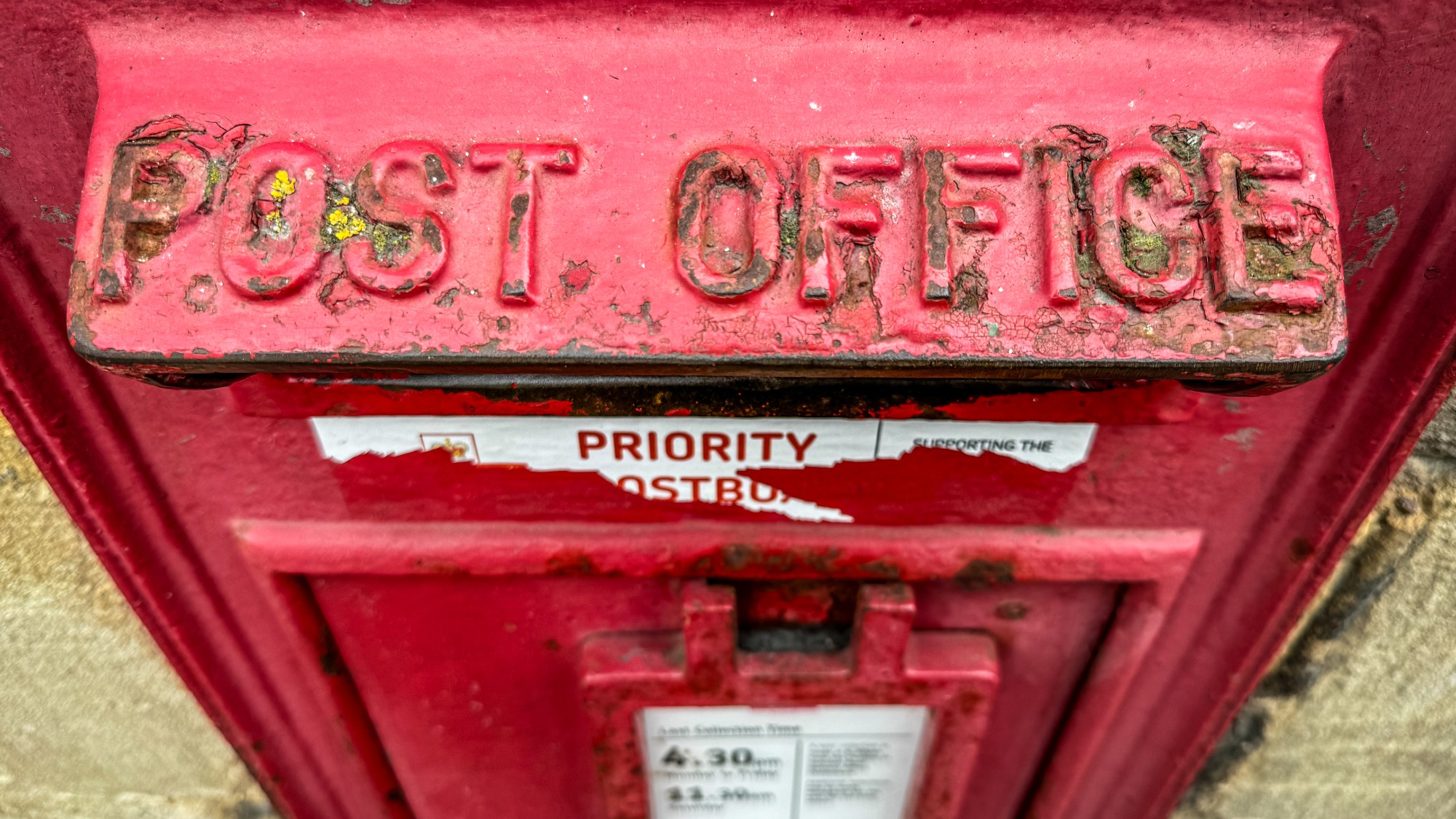 Post Office: still-troubled horizons
Post Office: still-troubled horizonsTalking Point Sub-postmasters continue to report issues with Horizon IT system behind 'one of the worst miscarriages of justice in British legal history'
-
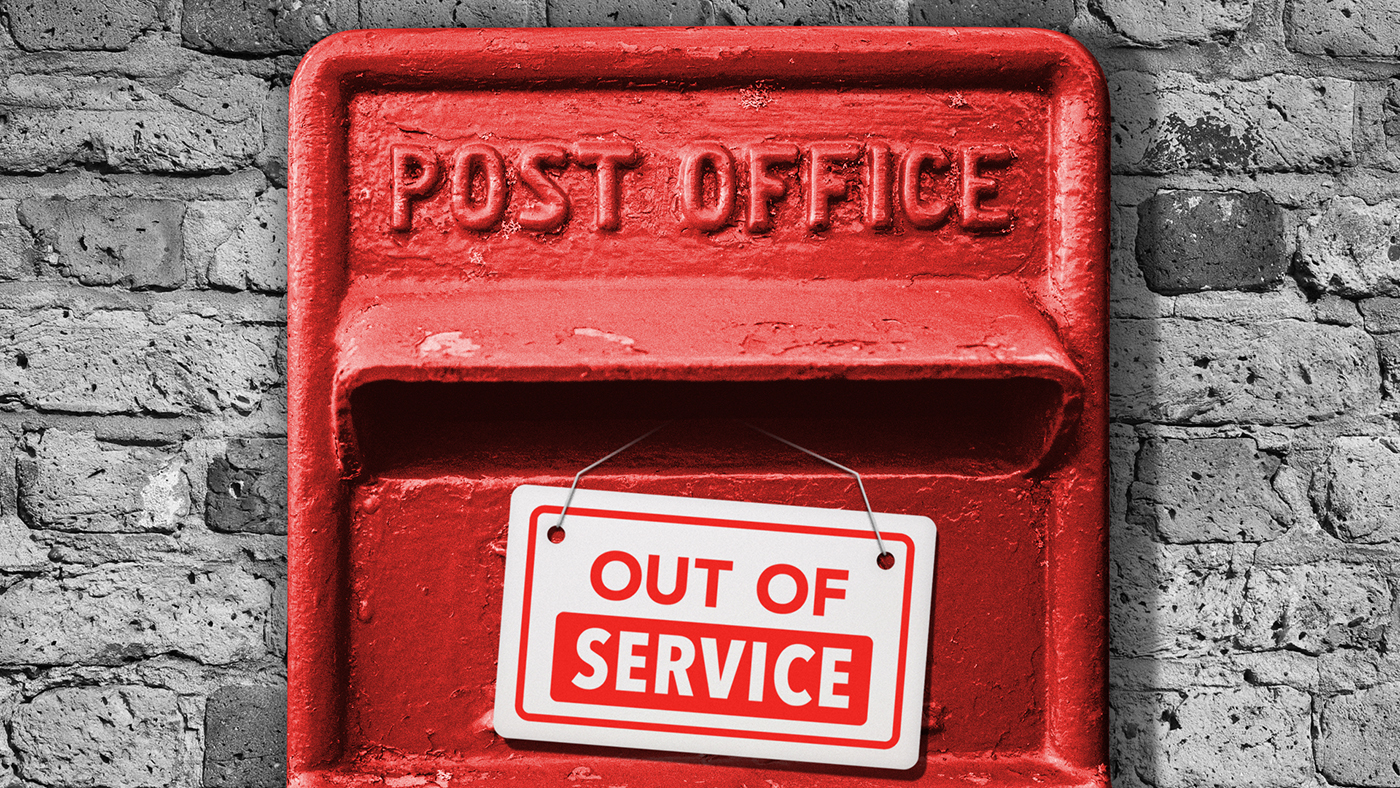 Why is Royal Mail failing to deliver?
Why is Royal Mail failing to deliver?Today's Big Question The 507-year-old British institution is facing carve-up and even insolvency with decline of letter writing
-
 Liz Truss and Kwasi Kwarteng’s supply-side reforms
Liz Truss and Kwasi Kwarteng’s supply-side reformsfeature PM and chancellor are banking on cuts to regulations and tax in bid to stimulate growth
-
 Why postal workers are going on strike
Why postal workers are going on strikeBusiness Briefing Post Office walkout will overlap with separate industrial action by Royal Mail staff
-
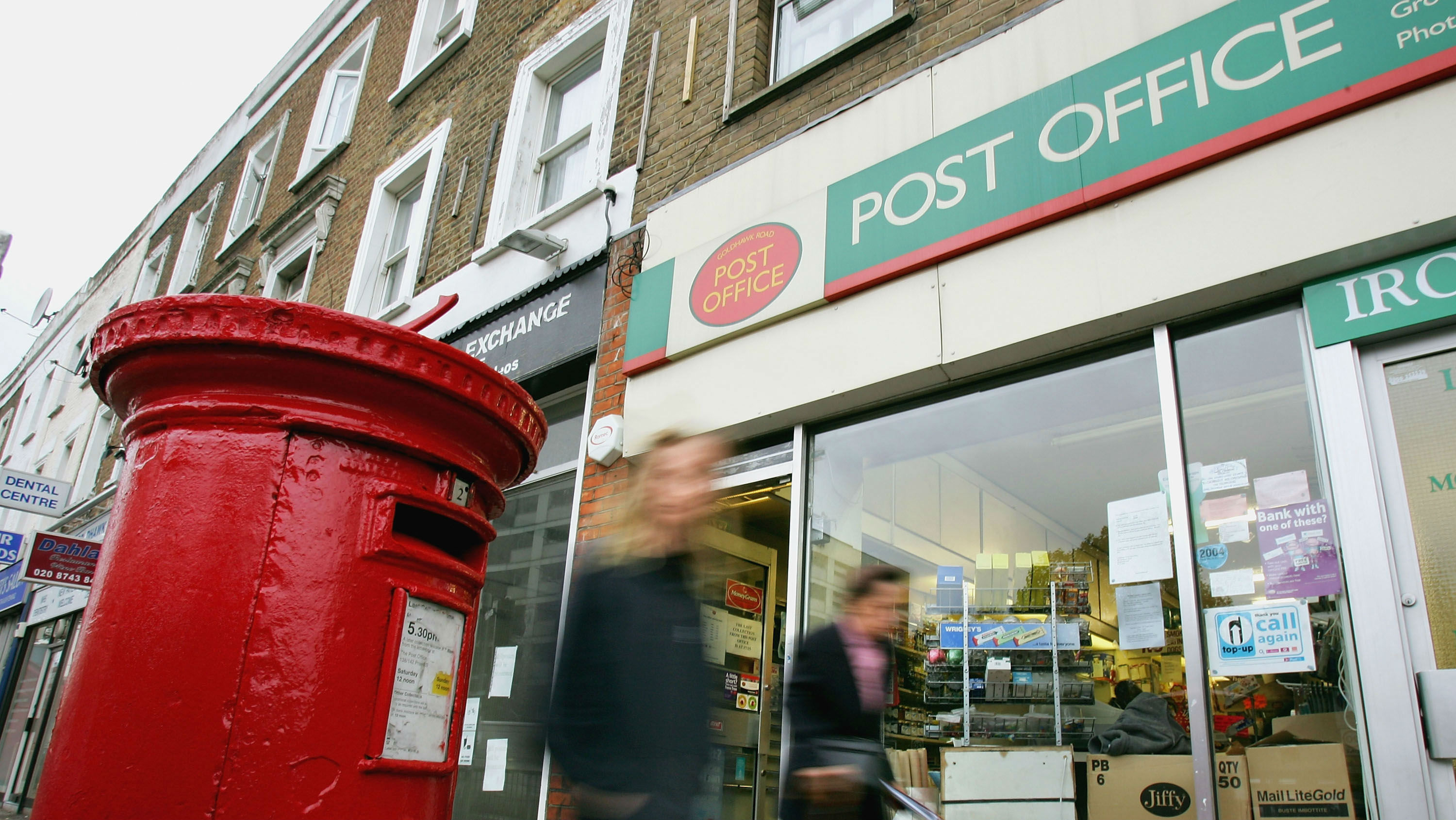 The Post Office scandal: what actually happened?
The Post Office scandal: what actually happened?feature The Court of Appeal has exonerated some of the huge numbers of wrongfully convicted sub-postmasters and mistresses in Britain
-
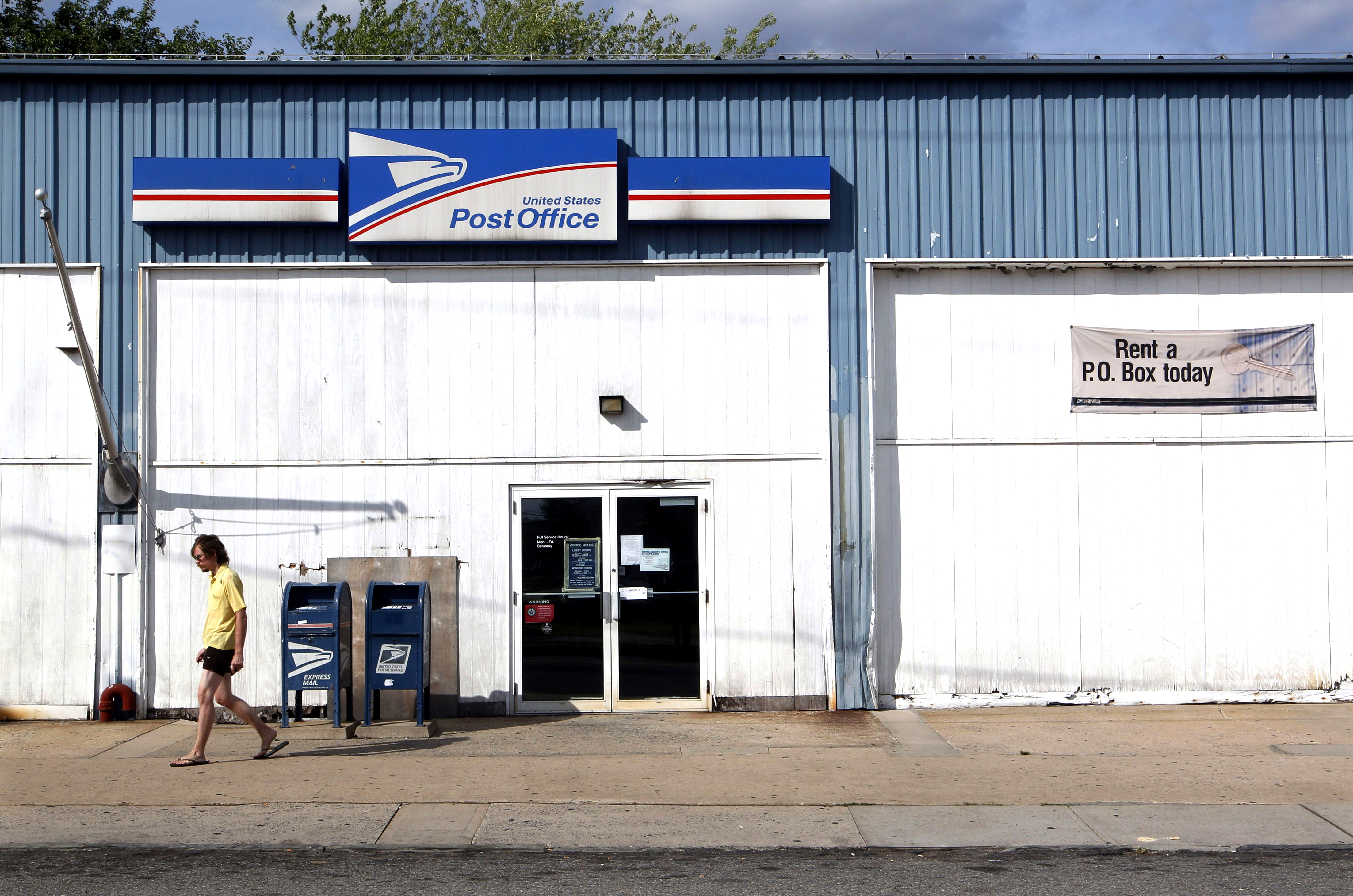 How George Bush broke the Post Office
How George Bush broke the Post Officeopinion If Trump really wants to fix USPS, he should look at how the Republican government of 2006 destroyed it in the first place
